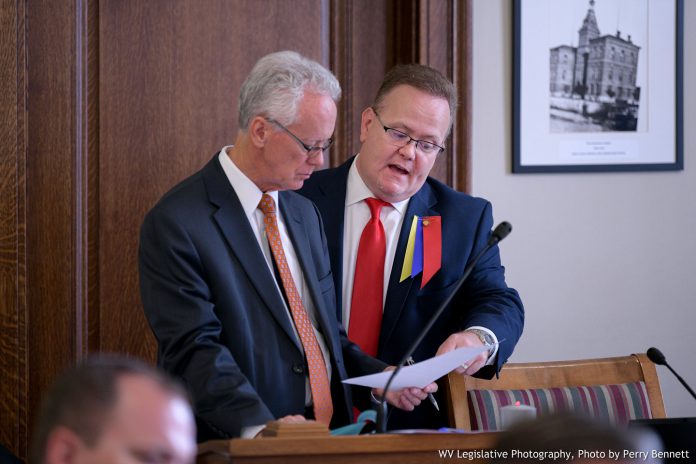A House education subcommittee advanced an originating education bill Monday.
Senate Bill 1039, the Student Success Act, was referenced to the House Subcommittee on Education C. The committee instead took up an originating bill and reported that bill to the House floor in a 14-8 vote.
When another subcommittee member asked why the House was originating the bill, Delegate Paul Espinosa, R-Jefferson, said, “We gauged the interest in 1039 or any changes members may have. It was the will of our caucus to have a fresh start. There were significant changes and the thinking of the education leadership team and members was to start anew.”
The originating bill had several differences from Senate Bill 1039. To see an outline of some of the major differences, visit here.
The originating bill would cap charter schools at 10 and would provide for charter schools to go into effect for the 2021 school year.
The originating bill would provide that before applying to form a charter school, a group would have to have or have submitted an application for a 501(c)(3) tax-exempt status. Higher education institutions also could submit applications to form charter schools.
County school boards would have to approve the applications. The state Board of Education would review an application if a charter contract is in a county where the state board has intervened in the operation of the school system and limited authority of the county board. It also could review applications in an instance where an application is approved by the county school board and the county board forwards that application to the state school board, requesting it to perform an authorizer function.
The bill does not include an appeal process for charter school applications.
The state school board would do up-front work on best practices, develop applications and contract forms and would provide training for applicants and authorizers. The bill also provides that preference may be given to the primary recruitment community, previous enrollment, and siblings. The bill also would provide that a lottery would not override previous attendance areas following any conversion to charter schools.
The originating bill removed a proposed new section regarding work stoppages and strikes.
The originating bill also added a proviso clarifying that increasing allowances for professional student support personnel may be made through public-private partnerships or contracts.
The originating bill replaced the tax credit under the Senate’s bill and would instead give a $200 increase to classroom teachers and librarians for supplies.
Some delegates expressed concerns regarding transportation and funding. Funding would follow students from a public school to a charter school if the student transferred.
The House subcommittee also reported House Concurrent Resolution 103 to the floor. HCR 103 is a study resolution, requesting the Joint Committee on Government and Finance to review the the Albert Yanni Programs of Excellence in Vocational-Technical Education.
These programs were created in 1989 to provide educational incentives for students and educators to achieve excellence in vocational-technical training.
HCR 103 would study these programs to determine their effectiveness and how they could be restructured or repealed.

